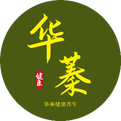

Human constitution is categorized into nine basic types: Pinghe (平和质, Harmonious Constitution), Qi Deficiency (气虚质), Yang Deficiency (阳虚质), Yin Deficiency (阴虚质), Phlegm-Dampness (痰湿质), Damp-Heat (湿热质), Blood Stasis (瘀血质), Qi Stagnation (气郁质), and Special Constitution (特禀质).
Among these nine types, all except the Pinghe constitution are considered imbalanced.
When the constitution is imbalanced, diseases are not far behind. To effectively “prevent disease before it occurs,” we must learn to understand our bodies, identify our constitution type, and adjust our imbalanced constitution to keep diseases at bay.

Qi Deficiency Constitution
Physical Characteristics: Soft and weak muscles.
Common manifestations: Weak voice, shortness of breath, reluctance to speak, easy fatigue, lack of energy, tendency to sweat, pale red tongue with tooth marks on the sides, weak pulse. Psychological characteristics: Introverted personality, dislike of risk-taking. Disease tendency: Prone to colds, organ prolapse, etc.; slow recovery after illness. Adaptability to external environments: Poor tolerance to wind, cold, heat, and dampness. The Qi Deficiency constitution is characterized primarily by a deficiency of Qi. The term “Qi” refers to the fundamental substance that constitutes and maintains human life activities. The body’s “Qi” originates from the innate essence of the parents, the refined essence of food and drink, and the pure Qi of the natural environment, generated through the physiological functions of organs such as the lungs, spleen, stomach, and kidneys. There are many types of “Qi” in the body, including Yuan Qi (元气, Original Qi), Zong Qi (宗气, Ancestral Qi), Ying Qi (营气, Nutritive Qi), Wei Qi (卫气, Defensive Qi), and the Qi of the five zang and six fu organs. These types of Qi serve as the energy of life, playing roles in promoting, warming, defending, consolidating, and transforming. If Qi is deficient, various symptoms will arise: if kidney Qi is insufficient, Qi cannot ascend to the throat, resulting in a weak voice and breathlessness after speaking a few words; if spleen Qi is insufficient, the muscles will lack strength, leading to a desire to lie in bed all day; if heart Qi is insufficient, the heartbeat will become irregular, occasionally speeding up; if Wei Qi is insufficient, it is like having no firewall against viruses, leading to frequent colds, often presenting as low-grade fever and lingering symptoms, without high fever, and feeling not very severe, mostly manifesting as cough, sneezing, runny nose, poor appetite, and fatigue. However, these symptoms can last for weeks; or just after a light rain, one may fall ill again. The formation of Qi Deficiency constitution is mostly due to insufficient innate endowment. This endowment is influenced by the parents’ constitution and the mother’s health during pregnancy. If the parents are weak or the mother does not adequately nourish herself during pregnancy, the child may be born with insufficient Qi, leading to a Qi Deficiency constitution. Additionally, prolonged illness, overwork, and excessive comfort can deplete Yuan Qi. For instance, some people enjoy lying in bed watching TV or reading, or they may simply be lazy and prefer to do nothing but enjoy a comfortable life. The “Huangdi Neijing” mentions that “prolonged lying harms Qi,” indicating that long periods of bed rest can also deplete Yuan Qi. Constantly lying down leads to a lack of movement, and since Qi is dynamic, remaining still restricts its activity. The spleen, located in the center of the body, is the hub of Qi movement and governs the limbs. If the limbs are inactive, it will first affect the spleen’s function. Those who lie in bed all day will certainly lack appetite and not want to eat, leading to insufficient absorption of the refined essence from food, and thus the spleen will lack the material to transform and generate Qi, resulting in symptoms of Qi deficiency.
Dietary Nourishment: Jujube (大枣, Da Zao), Millet (小米, Xiao Mi) to Strengthen the Spleen and Benefit Qi
For individuals with Qi Deficiency constitution, dietary adjustments can be made. Generally, one should choose foods that tonify Qi, such as millet, oat, lentils, cauliflower, carrots, shiitake mushrooms, tofu, potatoes, sweet potatoes, beef, rabbit meat, pork stomach, chicken, eggs, shark, yellow croaker, and flatfish. Additionally, the following foods are also beneficial for strengthening the spleen and benefiting Qi: Japonica rice (粳米, Jing Mi). Neutral in nature and sweet in flavor, it can tonify the middle and benefit Qi. Those with Qi deficiency should consume it regularly. Beef. Neutral in nature and sweet in flavor, it benefits Qi and blood, tonifies the spleen and stomach, and strengthens the muscles and bones. Beef is particularly effective in tonifying Qi, so those with Qi deficiency should eat it regularly. Dog meat. Warm in nature and salty in flavor, it can tonify the middle and benefit Qi, especially suitable for those with Qi deficiency combined with spleen, kidney, or lung deficiency, or Yang deficiency. Dog meat “tonifies lung Qi and consolidates kidney Qi,” making it especially good to eat in autumn and winter. Chicken. Warm in nature and sweet in flavor, it has the effects of warming the middle, benefiting Qi, tonifying essence, and nourishing blood. It is suitable for those with Qi deficiency, blood deficiency, or kidney deficiency. There is a folk custom of using Astragalus (黄芪, Huang Qi) to stew old hen, which enhances the Qi tonifying effect. Catfish. Warm in nature and sweet in flavor, it can enter the spleen and lungs to benefit Qi. Those with Qi deficiency should eat it. Eel. Warm in nature and sweet in flavor, it has the effects of tonifying deficiency, benefiting Qi, and strengthening muscles and bones, making it suitable for those with Qi deficiency. Mandarin fish (鳜鱼, Gui Yu), also known as sweetfish, can tonify Qi and blood and benefit the spleen and stomach, especially suitable for those with Qi deficiency combined with spleen deficiency. Jujube (大枣, Da Zao). Warm in nature and sweet in flavor, it is a common food with the effect of benefiting Qi and nourishing blood, often used by physicians for patients with Qi deficiency. It is best consumed stewed until soft. Cherry. Warm in nature and sweet in flavor, it can both benefit Qi and blood, as well as tonify the spleen and kidneys. Grapes. Neutral in nature and sweet-sour in flavor, they are a fruit that benefits Qi and blood. In addition to their Qi benefiting effects, ancient medical texts also state that grapes can strengthen the spleen and stomach, benefit the liver and kidneys, and strengthen muscles and bones. Those with Qi deficiency combined with kidney, lung, and spleen deficiency should consume them. Peanuts. Neutral in nature and sweet in flavor, they can tonify the spleen and lungs, especially suitable for those with Qi deficiency combined with lung or spleen deficiency, and it is best to consume boiled peanuts. Yam (山药, Shan Yao) is a Qi tonifying food, and those with Qi deficiency constitution or chronic Qi deficiency should consume it regularly for maximum benefit. Yam can tonify lung Qi, spleen Qi, and kidney Qi, so it is commonly used in prescriptions for lung Qi deficiency, kidney Qi deficiency, or spleen Qi deficiency. Bird’s nest (燕窝, Yan Wo). Neutral in nature and sweet in flavor, it benefits Qi, tonifies deficiency, nourishes Yin, and tonifies the lungs, especially suitable for those with Qi deficiency combined with lung deficiency. It is beneficial for those with weak spleen and lungs, and for all deficiencies in the Qi aspect, and can also consolidate the exterior, making it ideal for those with exterior deficiency and sweating.Herbal Nourishment: Gu Yin Decoction (固阴煎, Gu Yin Jian), and Bu Zhong Yi Qi Decoction (补中益气汤, Bu Zhong Yi Qi Tang) Individuals with Qi Deficiency constitution who wish to replenish Yuan Qi can prepare medicinal dishes using herbs such as ginseng (人参, Ren Shen), American ginseng (西洋参, Xi Yang Shen), codonopsis (党参, Dang Shen), prince ginseng (太子参, Tai Zi Shen), astragalus (黄芪, Huang Qi), white atractylodes (白术, Bai Zhu), yam (山药, Shan Yao), white lentils (白扁豆, Bai Bian Dou), licorice (甘草, Gan Cao), jujube (红枣, Hong Zao), Siberian ginseng (刺五加, Ci Wu Jia), jiaogulan (绞股蓝, Jiao Gu Lan), rhodiola (红景天, Hong Jing Tian), poria (茯苓, Fu Ling), and coix (薏米, Yi Mi) to make medicinal dishes or brew as tea.
Note: Please use herbs under the guidance of a physician!


Seasonal Nourishment: Keep Warm in Spring, Avoid Overexertion in Autumn, Stay Cool in Summer, and Supplement in Winter
Individuals with Qi Deficiency constitution have poor adaptability to environmental changes and are prone to wind and cold illnesses during seasonal transitions and significant temperature fluctuations, and they often do not recover easily, frequently relapsing. Therefore, it is essential to ensure warmth. In early spring, when the weather is still cold, one should practice “spring wrapping” and avoid shedding clothes and blankets too early to prevent catching viral colds, rubella, measles, and other epidemic diseases. Additionally, “overwork depletes Qi”; if you are too tired and your energy is excessively consumed without adequate replenishment, Qi will inevitably decrease. To prevent overwork, it is important to reiterate: do not stay up late, keep warm, and do not prioritize style over warmth. In summer, when the weather is hot, one should avoid excessive heat exposure, and after sweating, promptly replenish water and salt to prevent Qi deficiency and instability of the exterior, which can lead to excessive fluid loss and Qi depletion. Avoid excessive cooling, limit air conditioning, and reduce the intake of cold foods. During the long summer, dampness is heavy, and the spleen and stomach are most susceptible to pathogens, so attention should be paid to dietary hygiene, avoiding expired or spoiled foods, and reheating food taken from the refrigerator before consumption to prevent diarrhea and intestinal inflammation that can deplete Yuan Qi. In autumn, the dryness can easily harm lung Qi, so those with Qi Deficiency constitution should pay attention to lung health, maintain a cheerful mood, and avoid feelings of melancholy associated with autumn. If symptoms such as shortness of breath, dry cough, or blood-streaked phlegm occur, one should take medication promptly, drink plenty of water, and avoid vigorous exercise, especially after sweating during exercise, as exposure to wind can easily lead to colds, depleting Yuan Qi and resulting in more harm than good. In winter, the cold is severe, and it is a time for storage. One should go to bed early at night, avoid staying up late to prevent Qi depletion, eat less spicy foods, and consume more porridge to nourish the spleen and stomach. Reduce sweating and outdoor activities to prevent catching a cold.

